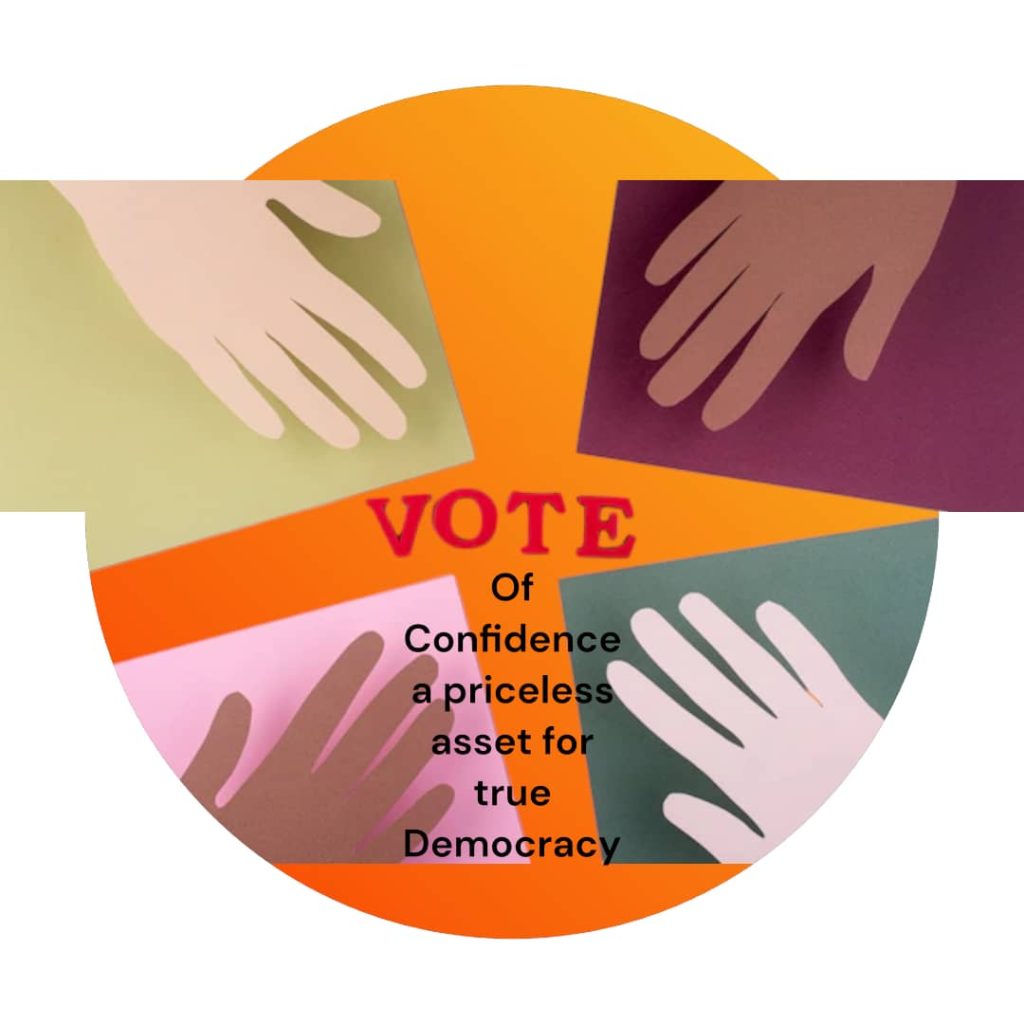The True Measure of Democratic Representation

Verifiable Scorecards
By Monday Igwe Elemi, M.Eng
Democracy thrives on transparency, accountability, and service delivery. Elected representatives are expected to uphold these principles by presenting tangible and verifiable records of their achievements—ranging from infrastructural development to human empowerment—rather than engaging in political theatrics, coercion, and intimidation to silence dissenting voices.
The recent leadership crisis in Ntan Council Ward of the APC, where some ward executives passed a vote of no confidence on their chairman, Mr. Eteng Igri Ekpe, highlights a troubling trend in our democracy. The allegations against him, particularly his refusal to endorse a purported vote of confidence on certain leaders, expose a fundamental issue: when politicians prioritize artificial political endorsements over real, measurable development, they betray the very essence of representation.
When Votes of Confidence Become a Mockery of Democracy
A vote of confidence in a representative should never be a predetermined script orchestrated by a few loyalists in closed-door meetings. Rather, it should be a reflection of public trust earned through tangible achievements—projects, programs, and policies that directly improve the lives of the people.
Where is the record of infrastructural development?
What employment opportunities have been facilitated for the youth?
How have constituents directly benefited from the government’s programs and interventions?
If there are verifiable successes, why resort to intimidation? Why should ward chairmen be pressured into signing votes of confidence instead of allowing the people to speak for themselves? Is the voice of the electorate no longer relevant in determining leadership credibility?
Service Over Symbolism: The Real Vote of Confidence Lies in Performance
The people do not need rehearsed affirmations; they need roads, schools, hospitals, jobs, and sustainable development initiatives. The focus should be on:
1. Infrastructural Impact – Where are the new roads, electrification projects, and clean water initiatives?
2. Economic Empowerment – How many young people and women have been empowered through vocational training, startup capital, and skill acquisition programs?
3. Legislative Oversight and Constituency Engagement – How many meaningful bills and policies have been sponsored to improve the livelihood of constituents?
4. Transparency and Accountability – Has there been a town hall meeting or open forum where the people assess the work done so far?
Threats, Intimidation, and Party Crises: The Wrong Priorities
It is deeply troubling that rather than allowing performance to speak for itself, some leaders resort to coercion, ensuring that only paid loyalists echo praises, while those who express independent opinions face persecution. This behavior is a betrayal of democracy. True leaders do not fear criticism; they welcome it as a tool for self-improvement.
If our representatives are indeed delivering on their promises, the evidence should be visible and indisputable, not dependent on forced endorsements. If any leader has genuinely uplifted the people, the constituents themselves will celebrate and defend their performance—not through a manipulated party structure but through their verifiable works.
A Call for a More Accountable Representation
The Executive Governor of Cross River State, His Excellency Apostle Senator Prince Bassey Edet Otu, has set a high bar with his People First agenda, working tirelessly to transform the state. This should serve as an inspiration for all representatives, who must align with this progress by ensuring that their scorecards speak louder than political endorsements. The Local Government and State Party Leadership must also take responsibility for ensuring that internal democracy prevails, rather than allowing divisions fueled by personal political survival.
As Christians, we are called to follow peace with all men (Hebrews 12:14), but peace is not the absence of conflict; it is the presence of justice. True peace in a democracy comes when leaders uphold truth, accountability, and service—not when they suppress dissent through intimidation.
The Chapter Chairman and Party Stalwarts Must Restore Order
In light of the unfolding crisis in Ntan Council Ward, the APC Chapter Chairman and key party stalwarts in the Local Government must rise to the occasion and refute this brazen action, which does not represent the collective interest of the party or its members. The removal of Mr. Eteng Igri Ekpe as Ward Chairman under such questionable circumstances is an affront to democratic principles and internal party unity.
The Stand of the Chapter Chairman and Party Stalwarts
The APC Chapter Chairman and key party leaders in the Local Government must categorically refute the forced vote of no confidence passed on Mr. Eteng Igri Ekpe, deeming it illegitimate, politically motivated, and detrimental to the unity of the party.
They must reaffirm that Mr. Eteng Igri Ekpe remains the duly elected and recognized Ward Chairman of Ntan Council Ward and call for an immediate reversal of any wrongful actions taken against him.
Furthermore, the party leadership should caution against the use of coercion and intimidation to achieve political gains, reiterating that democracy must be upheld within the party. They must also advise all members to focus on governance and service delivery rather than engaging in divisive politics.
The Real Verdict Lies with the People
If indeed the interest of the people is at the heart of leadership, then let the projects, empowerment programs, and developmental strides speak for themselves. Anything short of this is a betrayal of democracy, a distortion of governance, and an insult to the intelligence of the very people whose votes put them in office.
Democracy thrives when leaders earn the trust of their people through service, not when they impose artificial loyalty through coercion. It is time to return to the fundamentals of governance—service, accountability, and impact—so that the true vote of confidence comes, not from party executives in closed-door meetings, but from the people in whose hands power truly resides.
Conclusion
The APC in Ntan Council Ward must not allow itself to be hijacked by selfish interests. The leadership of the party at the Local Government and State levels must continue to uphold fairness and due process to maintain unity and progress within the party.
As we move forward, let every representative/leader at all levels remember: their legacy will not be determined by forced endorsements but by their tangible contributions to the people they were elected to serve.







